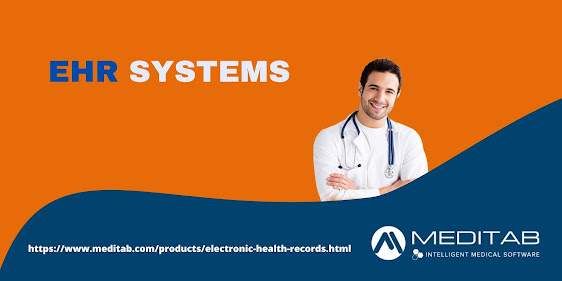WHAT IS EHR SYSTEM?
Healthcare is a complicated industry. It must constantly be focused on patient safety and care quality, which is considerably more difficult today than it has ever been. As a result, healthcare professionals and patients are learning to use telemedicine technology, which includes electronic health record systems.
EHR system serve to bridge the gap between high-quality care and technological improvements. They're designed to be a practical, usable, and convenient answer to the challenge of health record management. Many people are aware of or suspect that they are difficult to construct and maintain.
In this post, we'll delve into the topic of electronic health record systems in depth. We'll go through the definition of an EHR, the benefits of EHR, and the features that every EHR system should have, as well as how to get them.
What is an electronic health record system, and how does it work?
A digital equivalent of paper charts is an electronic health record system. Electronic health records, as opposed to the paper versions that patients have become accustomed to, are thought to be more efficient, effective, and accessible to both patients and medical workers.
EHR software systems are intended to retain individuals' medical and treatment histories, allowing for a more comprehensive perspective of their health. Authorized providers, such as healthcare specialists, pharmacies, laboratories, emergency rooms, medical imaging centres, and others, can access records.
The difference between an EMR and an EHR can be confusing at times. An Electronic Medical Record is a less advanced version of an EHR and refers to anything that would be found in a paper file, such as medical history, diagnoses, allergies, and vaccine dates. As a result, the phrase "electronic health record" (EHR) is used to refer to the electronic storage of all of the aforementioned information and more. This system also enables the sharing of up-to-date information, retrieval of information from outside the practise, and the use of built-in decision-making tools. These are the functions of a standard EMP.
It's important to know what types of these systems are available before making a decision. As a result, the conventional method for distinguishing between different types of these systems is to assess where the data-storage servers are situated — who owns the data. These are a few examples:
Physician-hosted - the EHR data is stored on the physician's server, implying that the physician has acquired the necessary hardware and software and is responsible for data maintenance and security.
Remotely hosted - Because the EHR data is stored on a third-party server, the server's upkeep and data security are the responsibility of the server's third-party owner. The three types of remotely hosted systems are as follows:
Financed - the EHR is subsidised by a third party, such as a hospital, with which a physician has a legally bound relationship.
Data on electronic health records is stored on dedicated servers owned by the vendor.
The EHR data is saved in the cloud, which means that the EHR emr software is not installed on the physician's PC and is instead accessed via the vendor's website.
Despite all of the benefits that these systems are often expected to provide, electronic health records have long been seen as flawed in many ways. They were recognised to be a source of a lot of extra work and few advantages before the Covid-19 coronavirus struck.
However, as the epidemic brought those weaknesses to light even more clearly, the route to the long-awaited transition became clearer. This continuing transformation, in particular, entails a shift in focus from keeping track of what happened to the patient to providing healthcare staff with the tools they need to better manage health issues. EHRs that are useful must assist doctors in making diagnoses and treatment plans. So, let's take a closer look at what may be done during the EHR system development process to bring about this shift. To know more contact Meditab.




Comments
Post a Comment